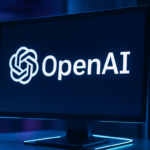Meta (NASDAQ:META) is embarking on a new chapter in its artificial intelligence journey, aiming to develop advanced AGI capabilities. This initiative reflects the broader tech landscape where cutting-edge AI research and deployment have become pivotal. Meta recognizes the importance of harnessing diverse talent to pioneer innovations that could have far-reaching impacts. The company’s focus on AI signifies its strategic commitment to stay at the forefront of technological progress.
In recent years, Meta has been consistently investing in AI, evident in its large-scale infrastructure initiatives and research collaborations. Their current move to establish an AGI team underscores an intensified effort to accelerate developments in this domain. Comparing their historical approach, this shift toward recruiting external talent shows Meta’s pragmatic strategy, recognizing the necessity of diverse expertise. Historically, internal teams were the mainstay, but recent trends indicate a more inclusive outlook as external partnerships become pivotal for meaningful advancements.
Who is Joining Meta’s AGI Journey?
Meta has secured the expertise of Jack Rae, previously a principal researcher at Google (NASDAQ:GOOGL) DeepMind. Other industry leaders like Alexandr Wang from Scale AI are anticipated to join, following Meta’s finalization of substantial investment agreements. Meta’s vision includes a robust team comprising 50 individuals, with leadership roles like the chief scientist pivotal in steering the efforts. This effort extends beyond traditional strategies, seeking a collective drive to augment Meta’s AI development ambitions.
How Is Meta Diversifying Its AI Strategy?
Meta’s plan involves a significant investment in Scale AI, a company specializing in data labeling, crucial for training machine learning models. Potential funding aligns with their pattern of expanding capabilities by integrating external technologies and expertise. Additionally, Mark Zuckerberg’s hands-on recruitment emphasizes a personalized approach, fostering deeper engagement with prospective innovators. This strategy marks a departure from previous reliance on internal research endeavors.
Zuckerberg’s proactive involvement, described as transitioning into “founder mode,” indicates an enhanced focus, integrating AI into core Meta offerings. He previously projected this year as crucial for technological leadership, resonating with Meta’s expansive AI commitments. Past endeavors were largely self-reliant, but current initiatives reveal a broader integration, leveraging new alliances for technological growth.
Meta’s previous investments in AI and infrastructure reflect an ongoing mission to expand its technological prowess. Previously, the company allocated substantial resources towards developing its facilities and internal research capabilities. Now, collaboration with other firms showcases a nuanced approach upgrading their capacities through external expertise, adapting to evolving industry dynamics.
The ongoing commitment to these initiatives and partnerships is anticipated to significantly influence Meta’s technological trajectory. Such endeavors highlight the company’s adaptability in navigating an evolving tech landscape, aligning internal strategies with external collaborations for sustained growth.










